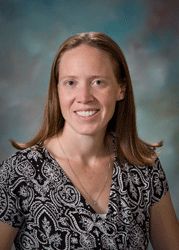
This past week I attended the American Academy of Family Physician’s annual conference. It was for the 2nd year in a row a virtual conference, which is nice because I could watch presentations from my couch or hammock, but really does lack that sense of camaraderie that a gathering of colleagues from across the country lends. It was nice to listen to dozens of lectures and updates from physicians all over the country on a wide variety of topics from “Atrial Fibrillation: the regular irregularity” to “Common Behavior Issues in Children” to “Lifestyle Medicine: Practical Tips for incorporating it into your Practice and Life.” I attended the COVID update, anticoagulation update, immunization update and several others that were pandemic focused, but honestly we have spent so much energy on the pandemic over the past 18 months we are all ready for a break and I appreciated thinking of some other challenges that medicine provides.
Back home this past week we were making some progress on the COVID front here at home. We immunized a lot of our community; over 140 doses were given on Friday alone! We’re giving the 1st, 2nd and in some instances 3rd doses of COVID vaccines to people and it’s good to know that more of our community will be protected from the risk of hospitalization and death from COVID. We have three vaccines available. The Pfizer vaccine provides, as of August, 79.8% against infection and 95% protection against hospitalization. As time goes, some reduced protection has been seen in the community setting so boosters are being recommended for immunocompromised and have been approved for others at high risk including anyone over 65y/o. The Moderna vaccine has showed to be slightly superior to the Pfizer against the delta variant. The Johnson & Johnson one dose vaccine has been studied against the delta variant and found to be 71% effective against hospitalization and up to 95% effective against death. This is really our best frontline defense so it is great to see community members taking advantage of the vaccines. In the United States, 394 million doses have been given with 56% of the country being fully immunized and here in Idaho we are lagging a bit with 1.58 million doses given with only 41% of our population being fully immunized. If you are interested in getting your vaccine, please call the clinic at 208-476-5777.
We are testing for infections and every week with our updates I am hoping to see the curve of positive cases trend down showing that this “delta wave” is passing, though I know that hospitalization rates will lag behind. The state has a new program set up to help coordinate the transfer of patients needing specialty care to hospitals with those resources and my phone has alerted me several times this week of such transfer attempts. Here at CVH, and also at SMH, we have stood up a program to consult with an ICU doctor as we care for more patients who had traditionally been transferred to an ICU but can’t get one in the current healthcare environment. The military community hospital in which I worked previously had a virtual ICU so this concept can certainly help provide a second opinion in a community setting close to home. Necessity is often the mother of invention, though we begrudgingly admit that.
As far as treatments, there are certainly not great treatments for COVID, as is generally true of viral illnesses, but a pandemic has a way of pushing for innovation and treatment options are no exception. CVH and SMH are administering Reg-COV, a monoclonal antibody that reduces the incidence of hospitalization or death from any cause by approximately 70%, rapidly reduce the viral load, and shorten the duration of symptoms. It can only be given to those who are not requiring oxygen (or an increase in the oxygen they usually require) so if you have symptoms, a positive COVID test, and are at high risk (which might just be a BMI >25 so catches a large swath of us) ask if this is something you should consider. We are also still giving Remdesivir (an antiviral) and steroids as well as providing oxygen support for those who develop respiratory symptoms and meet criteria. However, if you have to be hospitalized it is generally not a good situation, so we really hope to avoid hospitalization through vaccine efforts, physical distancing, masking, and for those who catch the virus the monoclonal antibodies.
I hope next year to attend a conference in person, or frankly to go on vacation to just about anywhere with some good food I don’t have to cook or clean up after ….and maybe a pool. I’m quite certain we are not done with COVID though, so while we are all ready to move on please continue to do your part – get vaccinated, physically distance, stay home if you or a contact are ill, wear a mask in public indoor spaces, and get tested if you are sick.
